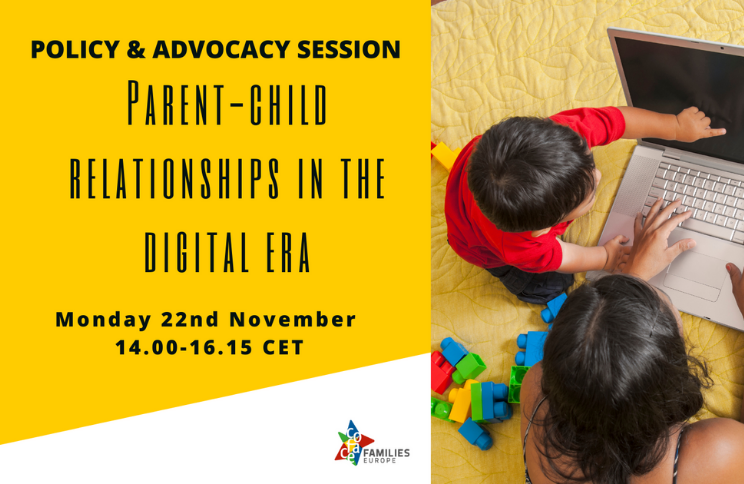The parent-child relationship has changed significantly in the last two decades with the advent of the digital age, even more since the ratification of the UN Convention on the Rights of the Child in 1989, and the general perception is that technology has caused a deterioration of family relations. But fresh evidence from European research shows that the picture is more nuanced. A recently published DigiGen review indicates that the ways families engage with digital technologies are complex and have varying effects. On the one hand, ICT offers unique opportunities for all family members. On the other hand, children – and adults – face online risks and challenges. It shows that the ways families engage with digital technologies are complex.
On 22nd November 2021, COFACE organised a policy and advocacy session with the following aims:
- Consult a wide range of stakeholders on ICT and the impact on family life about key measures needed to support parent-child relationships in the digital era;
- Encourage knowledge transfer across EU countries on the impact of digitalisation on family life;
- Present results of the DigiGen Horizon2020 research on the impact of digital transformations and families;
- Promote lifelong learning, to keep up with the rapid changes that digital technology is bringing to the world;
- Ensure child rights are respected in the online world, with a focus on building a safer internet and online participation.
Overarching messages from the study session
- Raising the digital generation can be a challenge. Families must receive adequate guidance and support in navigating parenting in the digital era.
- Digitalisation affects the whole family in different ways. We all also have different levels of competences and experiences of digital technologies, with children and young people often acting as ‘experts’ in this area. Families should be empowered to work together to develop digital competences and mediate their use of digital technologies.
- It is clear that although there are important interventions families can make themselves, they cannot tackle this alone. Policy makers and technology companies must play their part and not leave the burden on children and families.
Download the key findings of the meeting report
For more information, contact Holly Shorey, COFACE Project and Advocacy Officer hshorey@coface-eu.org





